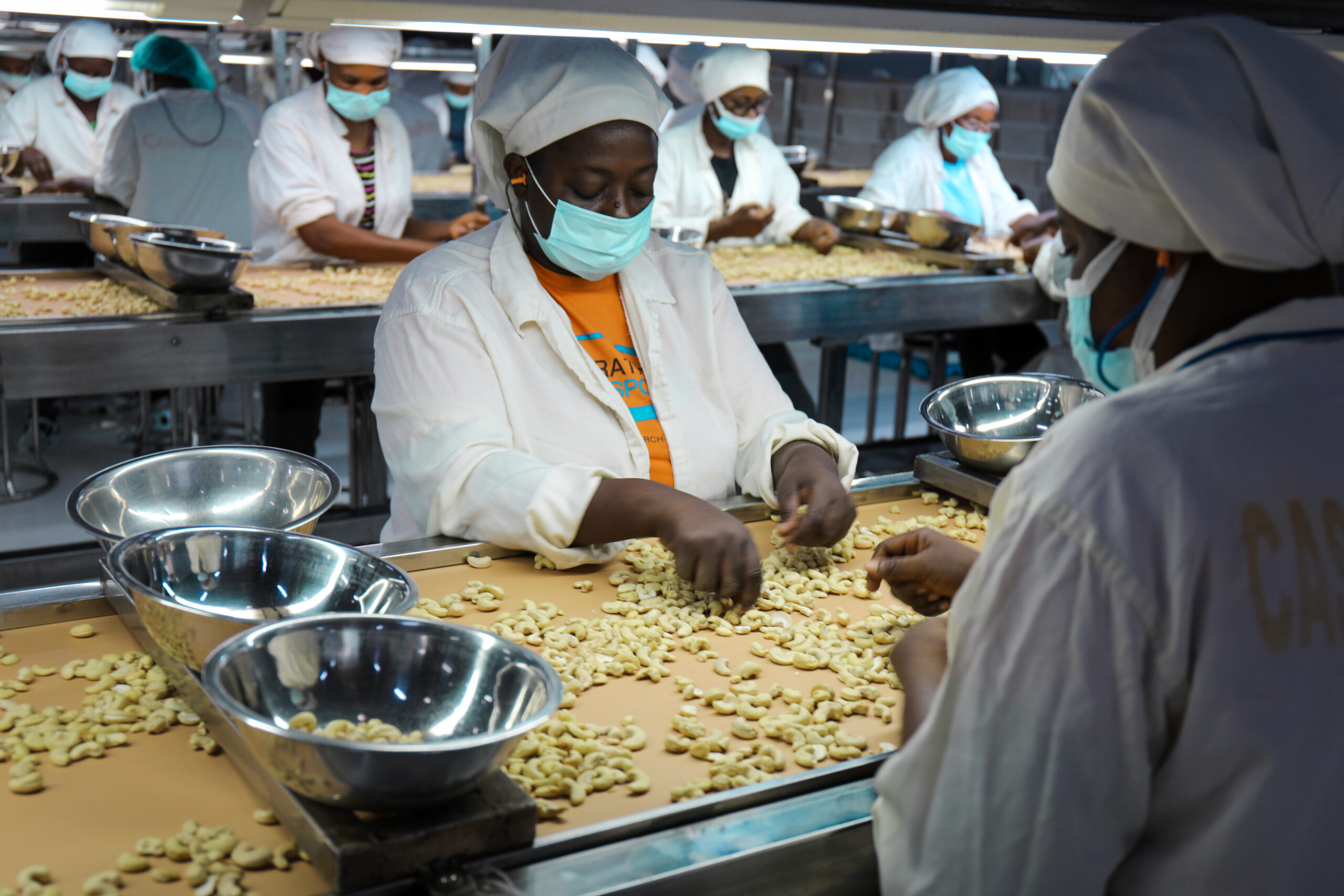West Africa PRO-Cashew Project
Benin, Burkina Faso, Côte d'Ivoire, Ghana, Nigeria
Overview
The $47.3 million five-year USDA Food for Progress West Africa PRO-Cashew Project (PRO-Cashew) (2019-2024) works to boost the competitiveness of West African producers by improving efficiency and quality in production and trade, and by working to develop more coherent regional trade and investment policies. In doing so, the project will strengthen producer capacities as well as develop incentives to renovate and rehabilitate cashew farms, improve production and quality, and create a more competitive West African RCN for the international market.
Expected Impact
- $133.6 million in annual sales of farmers and firms as a result of USDA assistance
- $3.7 million accessed in agricultural-related financing as a result of USDA assistance
- 728,516 individuals benefiting as a result of USDA assistance
- 106,822 hectares under improved management practices or technologies that promote improved risk reduction and/or natural resource management
- 340 jobs created

Cashews were introduced to West Africa in the 1960s to fight erosion and desertification. Over the past decade, increased demand, expansion of orchards, and government prioritization have caused raw cashew nut (RCN) production to become a critical commercial activity for smallholder farmers and a major revenue stream for governments. West African production is also growing faster than that of any other region—ten percent over the past decade, generating $1.5 billion in export sales for over 1.1 million farmers. Côte d’Ivoire is the world leader in cashew production, followed by Nigeria, Benin, Burkina Faso, and Ghana.
Approach
Cashew gains made by West African producers face several serious challenges: reduced yields due to aging cashew tree stocks, farmers’ limited technical and financial capacity to rehabilitate and renovate aging orchards, and an undeveloped nursery sector unable to provide timely and consistent high-performance seedlings to offset declines in productivity. This is complicated by the fact that the same trade policies that have boosted exports also pit countries against their neighbors, producing uncoordinated regional policies that weaken public and private-sector support for cashew grower/seller advocacy efforts. To combat this, PRO-Cashew works to:
- Build Capacity: CNFA builds the capacity of farmers through selected farmer organizations and agro-food suppliers over the life of the project in the areas of business and orchard management and service delivery. In collaboration with the Competitive Cashew Initiative (ComCashew) and the African Cashew Alliance (ACA), CNFA works with local ministries of agriculture to review training curriculums, identify gaps, and mentor extension teams in Good Agricultural Practices (GAP) and renovation and rehabilitation (R&R).
- Facilitate In-Kind Grants for Equipment and Inputs: CNFA leverages matching contributions of individual grant disbursements from private, public, or farmer sources to catalyze private investment, increase stakeholder partners’ and farmers’ profitability, and build the capacity of cashew farmers to renovate and rehabilitate their farms.
- Facilitate In-Kind Grants for Equipment and Inputs: CNFA supports private sector nurseries (larger than 10,000 cashew trees per year) and potential large processing companies to improve the efficiency and sustainability of seedling production systems by facilitating public-private partnerships, growing cost-effective, high-performance tree seedlings at central nurseries and distributing seedlings close to farms through rural-based seedling retail businesses. CNFA also facilitates agreements between research entities and the central nurseries to ensure long-term public-private partnerships. PRO-Cashew coordinates with existing efforts of the governments, World Bank, and research institutes.
- Disburse Improved Market Information: CNFA strengthens existing data and fills significant gaps in data coverage and quality. The integrated Cashew-IN platform, a regional database housing information for farmer organizations, policymakers, and private sector organizations to understand and monitor the global cashew supply chains, is accessed and used by farmer organizations, policymakers, and private sector investors to understand the national, regional, and overseas cashew markets in terms of supply and demand. It also monitors the cashew supply chain, supports traceability for quality control, and informs evidence-based policies to increase the profitability and marketability of cashews in West Africa.
- Improve Policy and Regulatory Framework: CNFA engages with national and regional policymakers, private sector stakeholders, and development agency partners to facilitate and improve regional trade policy cooperation. With the support of regional research centers, CNFA conducts analyses of trade policies currently deployed by West African cashew-producing countries and produces annual reports on country and regional competitiveness, government policy analysis, and foreign direct investment with quantitative and policy analysis.




